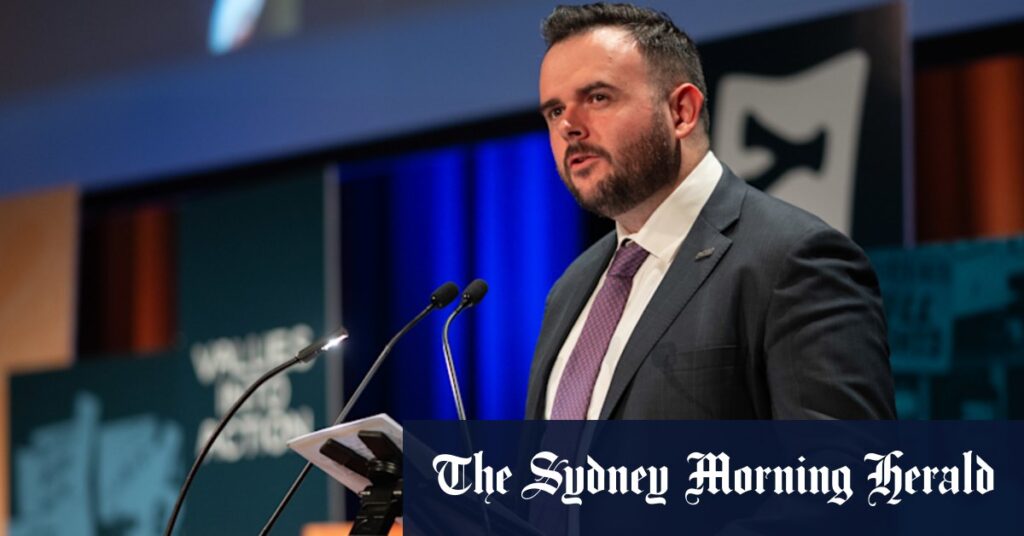
The Australian Council of Trade Unions (ACTU) is set to demand that employers ensure job security for workers before integrating artificial intelligence (AI) into their operations. This bold proposal is expected to heighten tensions ahead of the Albanese government’s productivity roundtable scheduled for next month.
Joseph Mitchell, the council’s assistant secretary, is slated to deliver a speech on Tuesday emphasizing the union movement’s expectation that the Labor government will enact legislation to prevent the use of AI in businesses that fail to reach agreements with their employees. The announcement underscores a growing concern among unions about the potential impact of AI on job security.
Union’s Call for Comprehensive AI Legislation
In his upcoming address at the Melbourne University Productivity Flash Forum, Mitchell is expected to stress the necessity of a comprehensive AI act. According to draft speech notes obtained by this publication, Mitchell will argue,
“It is necessary to have a comprehensive AI act to ensure that such bad-faith uses of this technology are protected against. Workers will be all in if they know doing so will not cost them their jobs.”
The ACTU’s stance reflects a broader apprehension about the rapid adoption of AI technologies and their implications for employment. Unions are increasingly vocal about the need for protective measures that safeguard workers’ rights in the face of technological advancements.
Business Perspective on AI Integration
Conversely, business groups have championed the integration of AI as a significant opportunity for Australia, potentially boosting productivity by billions of dollars. They argue that AI can enable the redeployment of workers to higher-skilled roles, advocating for minimal restrictions to facilitate the technology’s adoption.
These business leaders contend that AI can drive efficiency and innovation, ultimately benefiting the economy. However, they caution against imposing safeguards that could hinder technological progress, suggesting that a balanced approach is necessary to maximize AI’s potential while addressing workforce concerns.
Historical Context and Global Comparisons
The debate over AI and job security is not unique to Australia. Globally, countries are grappling with similar challenges as AI technologies become increasingly prevalent. In the European Union, for example, comprehensive regulations are being developed to govern AI use, emphasizing transparency and accountability.
Historically, technological advancements have often led to shifts in the labor market. The Industrial Revolution, for instance, saw significant changes in employment patterns, necessitating new regulations to protect workers. The current discourse around AI echoes these past transitions, highlighting the need for adaptive policies that address modern technological realities.
Implications for the Future
The ACTU’s proposal represents a critical juncture in the conversation about AI and employment. As the Albanese government prepares for its productivity roundtable, the pressure to balance economic innovation with worker protection is mounting. The outcome of these discussions could set a precedent for how Australia navigates the intersection of technology and labor rights.
Looking ahead, the dialogue between unions, businesses, and the government will be pivotal in shaping policies that ensure equitable outcomes for all stakeholders. As AI continues to evolve, the need for collaborative solutions that address both economic and social dimensions becomes increasingly urgent.
The upcoming productivity roundtable will likely serve as a platform for these crucial discussions, with the potential to influence Australia’s approach to AI integration in the years to come.





